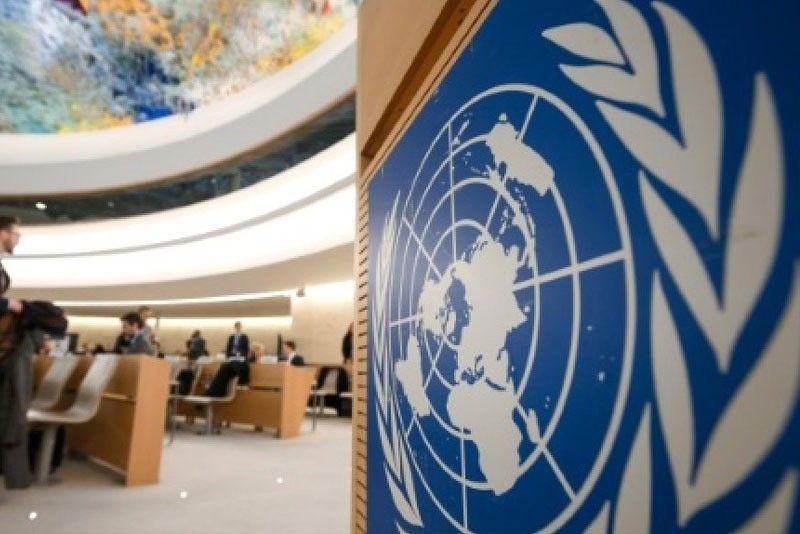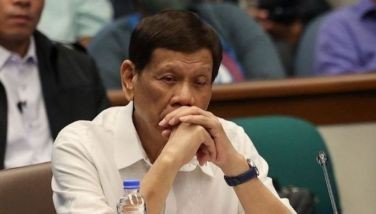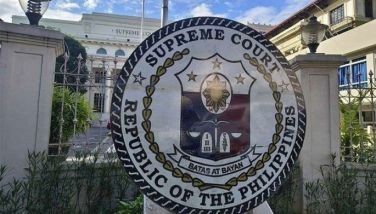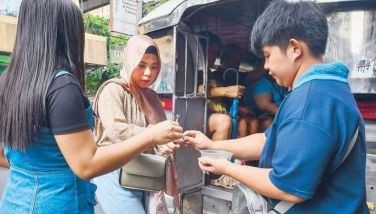UN: Not enough capital for Philippines education, healthcare, infrastructure

MANILA, Philippines — Seven years before the 2030 deadline to meet the Sustainable Development Goals, the United Nations called for accelerated funding to help the Philippines meet the SDGs.
While financing and development assistance for human development and climate action grew considerably in response to the COVID-19 pandemic, Gustavo Gonzalez, UN Philippines resident coordinator, said “there is still not enough capital that goes to addressing challenges in education, healthcare and resilient infrastructure that have lingered before the pandemic. Financing sustainable development needs to scale up.”
A recent gathering of officials from development, diplomatic, government and the private sector opened with a call to accelerate financing that can help meet the country’s development goals within globally and nationally set timelines.
“We are seven years closer to the 2030 deadline to meet the Sustainable Development Goals. At the same time, we are racing against a fast-approaching 17-year deadline to achieve the aspirations spelled out in the country’s very own Ambisyon Natin 2040,” Gonzalez said during the Partners’ Event for the Joint Programme on Integrated National Financing Framework (JP-INFF).
“This means we should collectively ponder a complete and integrated approach to financing the Future We Want,” he added.
SDGs, also known as the Global Goals, were adopted by the UN in 2015 as a universal call to action to end poverty, protect the planet, and ensure that by 2030 all people enjoy peace and prosperity.
The 17 SDGs are integrated – they recognize that action in one area will affect outcomes in others, and that development must balance social, economic and environmental sustainability.
Gonzalez invited the event participants to see how evidence generated from JP-INFF studies and exercises can inform approaches to mobilize resources toward realizing the country’s economic and social transformation agenda in light of a new medium-term Philippine Development Plan (PDP) that lies within the 2030 timeline for the SDGs.
“As we operationalize the PDP,” Gonzalez said, “our collective efforts on financing the SDGs will play a vital role in that resources will be available to support the attainment of the country’s development outcomes.”
The National Economic and Development Authority (NEDA), the lead government counterpart in the JP-INFF, acknowledged the latter’s initiatives in generating evidence and insights that can accelerate action on and financing urgent development challenges.
Among JP-INFF’s initiatives cited by NEDA is the development of tools that capture public investments in national-level programs aligned with sustainable development priorities and local government spending for child-focused programs.
Edwine Carrié, deputy resident representative of the United Nations Development Programme (UNDP), the lead agency behind the exercise, said “the [budget tagging] exercise allowed us to explicitly and consciously scrutinize the various programs and projects we implement in order to see their impact on the SDGs and the sectors which we aim to empower through these Goals.”
Drawing from lessons from and experiences in other countries, and the Philippines’ own Climate Budget Tagging systems, the SDG Budget Tagging exercise was also designed to build the capabilities of government agencies to adopt the system, such as hands-on training, and a help desk to provide one-on-one coaching support.
- Latest
- Trending



























